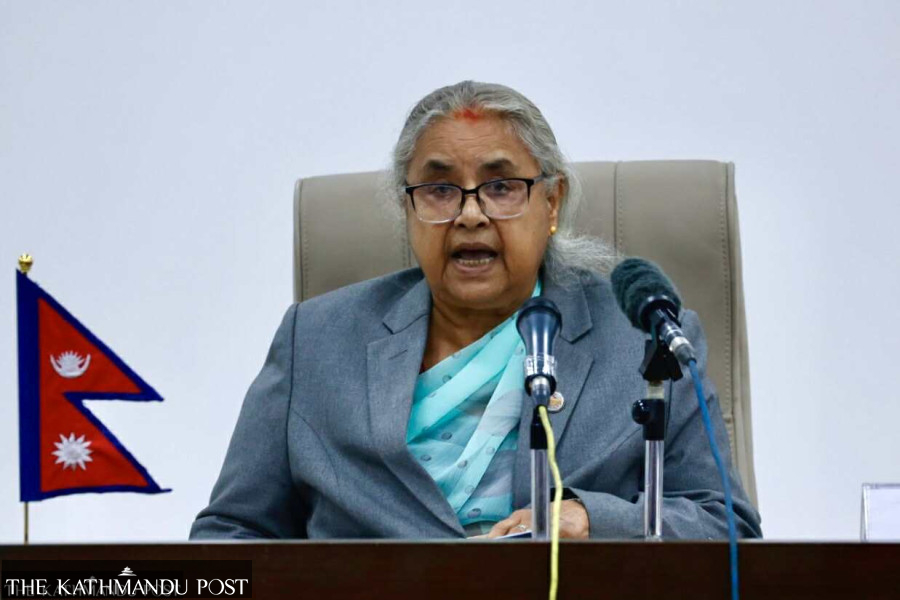
News
October 27, 2025
Provinces complain of snub by Karki-led interim government
Provincial ministers rue ‘unilateral’ budget freeze. Say lack of collaboration hinders preparations for March elections.
**Provinces Voice Concerns Over Alleged Snub by Karki-Led Interim Government**
Kathmandu – Provincial ministers across Nepal are expressing growing discontent over what they perceive as a lack of consultation and collaboration from the Karki-led interim government, particularly regarding the recent budget freeze. Ministers are lamenting what they describe as a “unilateral” decision that is significantly hampering their preparations for the upcoming March elections.
Several provincial officials have voiced their frustrations, stating that the budget freeze, implemented without prior discussion or input from provincial governments, is creating significant logistical and operational challenges. They argue that the abrupt nature of the freeze is disrupting planned initiatives and potentially jeopardizing the smooth execution of crucial pre-election activities.
“We were informed, not consulted,” one minister from Province 3 stated anonymously. “This lack of communication undermines the spirit of federalism and makes it incredibly difficult for us to effectively manage our responsibilities in the lead-up to such an important national event.”
The concerns revolve primarily around the impact on essential services and infrastructure development necessary for facilitating the elections. Ministers claim that the freeze is affecting the procurement of necessary materials, the deployment of personnel, and the overall logistical support required to ensure a free and fair electoral process.
Furthermore, the lack of collaboration is seen as a worrying trend. Provincial governments argue that their intimate knowledge of local conditions and needs is crucial for effective election preparation. By not involving them in the decision-making process, the interim government risks overlooking critical issues and potentially undermining the overall credibility of the elections.
The ministers are urging the Karki-led government to reconsider its approach and engage in meaningful dialogue with provincial authorities to address these concerns. They emphasize the importance of a collaborative effort to ensure the successful and transparent conduct of the March elections, warning that continued unilateral actions could further erode trust and hinder the effective functioning of the federal system. The situation is being closely monitored as the election date approaches.
Kathmandu – Provincial ministers across Nepal are expressing growing discontent over what they perceive as a lack of consultation and collaboration from the Karki-led interim government, particularly regarding the recent budget freeze. Ministers are lamenting what they describe as a “unilateral” decision that is significantly hampering their preparations for the upcoming March elections.
Several provincial officials have voiced their frustrations, stating that the budget freeze, implemented without prior discussion or input from provincial governments, is creating significant logistical and operational challenges. They argue that the abrupt nature of the freeze is disrupting planned initiatives and potentially jeopardizing the smooth execution of crucial pre-election activities.
“We were informed, not consulted,” one minister from Province 3 stated anonymously. “This lack of communication undermines the spirit of federalism and makes it incredibly difficult for us to effectively manage our responsibilities in the lead-up to such an important national event.”
The concerns revolve primarily around the impact on essential services and infrastructure development necessary for facilitating the elections. Ministers claim that the freeze is affecting the procurement of necessary materials, the deployment of personnel, and the overall logistical support required to ensure a free and fair electoral process.
Furthermore, the lack of collaboration is seen as a worrying trend. Provincial governments argue that their intimate knowledge of local conditions and needs is crucial for effective election preparation. By not involving them in the decision-making process, the interim government risks overlooking critical issues and potentially undermining the overall credibility of the elections.
The ministers are urging the Karki-led government to reconsider its approach and engage in meaningful dialogue with provincial authorities to address these concerns. They emphasize the importance of a collaborative effort to ensure the successful and transparent conduct of the March elections, warning that continued unilateral actions could further erode trust and hinder the effective functioning of the federal system. The situation is being closely monitored as the election date approaches.
Category:
Politics